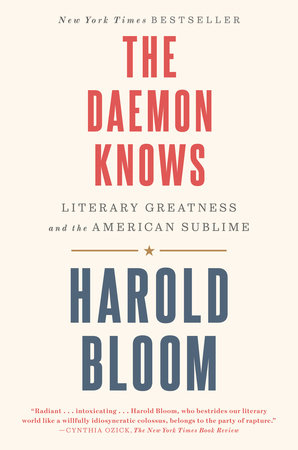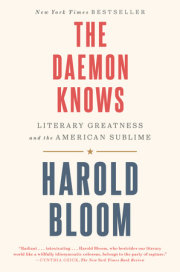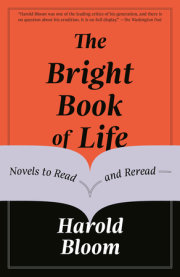I.
Walt Whitman and Herman Melville
Foregrounding the Giants
Walt Whitman and Herman Melville abide as the giants of American literary tradition. Their vaunting overreach is not matched until Hart Crane and William Faulkner, each equally ambitious in scope and drive, assault the frontiers already extended outward by Moby-Dick (1851) and the first three Leaves of Grass (1855, 1856, 1860).
Rich as North American literary culture became—at least before the twenty-first century—it brought forth no peers of Dante and Cervantes, Montaigne and Shakespeare, Tolstoy and Joyce. Only Moby-Dick and Whitman in his half-dozen major poems—Song of Myself, The Sleepers, Crossing Brooklyn Ferry, and the three elegiac meditations (Out of the Cradle Endlessly Rocking, As I Ebb’d with the Ocean of Life, When Lilacs Last in the Dooryard Bloom’d)—suggest Tolstoyan resonances. Søren Kierkegaard found in Shakespeare “the resonance of the opposite.” All twelve writers centering this book share in that antithetical strain. It is not that Whitman and Melville possess it more deeply than Emerson, Emily Dickinson, or Henry James, but I do not hear in them the sea crying out, as we listen to the earth calling aloud in Tolstoy.
Yet Melville and Whitman have little else in common. Walt was interested in Typee but nothing by Melville after that, and the defeated seer of Moby-Dick rather resented whatever notoriety the self-promoting Whitman achieved. I doubt he ever read a line of Leaves of Grass.
Foregrounding Dante and Shakespeare depends upon intricate inferrings. Their direct precursors, Guido Cavalcanti and Christopher Marlowe, were major poets, but the authors of the Commedia and of Hamlet and King Lear are beyond all simplicities of inheritance. Certainly there was an anguish of contamination. The Inferno places Cavalcanti’s father and father-in-law among the damned and poignantly allows the father anxiously to question the Pilgrim: Why is it Dante rather than Cavalcanti who makes the Divine Journey? Kit Marlowe haunts Shakespeare, though scarcely in style and hardly in the creation of personalities. The art of achieving rhetorical power over an audience was bequeathed by Marlowe to his contemporary Shakespeare, who might not have seen its possibilities without this apprenticeship to the dramatic oratory of Tamburlaine, the Guise, Barabbas, and Doctor Faustus.
Foregrounding Whitman and Melville is difficult, because of the radical originality of Leaves of Grass and Moby-Dick. Emerson, Walt’s only begetter, evoked considerable resistance from Melville, who attended the sage’s New York City lectures and annotated his essays. Melville’s ambivalence led to his satirizing Emerson as Plotinus Plinlimmon in Pierre and as Mark Winsome, savaged in The Confidence-Man. Ahab and Ishmael nevertheless are partial Emersonians, while Hester Prynne and Isabel Archer are his daughters. Only Southerners, from Poe to Faulkner and Robert Penn Warren, have been immune from the Concord contagion.
Though Emerson rubbed his eyes to puzzle out “the long foreground somewhere” of Leaves of Grass 1855, nobody was unlikelier to probe inferential origins. A man without a handle (the complaint of Henry James, Sr.), Emerson was skilled in the art of slipping away from categories and persons alike. His greatness allowed for a singularity that could thrill to the commonplace and that enabled Walt, the child who went forth. Whatever Whitman looked upon, he became. Melville massively resisted so promiscuous a cavalcade of identifications.
Ahab is a hard transcendentalist:
Hark ye yet again,—the little lower layer. All visible objects, man, are but as pasteboard masks. But in each event—in the living act, the undoubted deed—there, some unknown but still reasoning thing puts forth the mouldings of its features from behind the unreasoning mask. If man will strike, strike through the mask! How can the prisoner reach outside except by thrusting through the wall? To me, the white whale is that wall, shoved near to me. Sometimes I think that there’s naught beyond. But ’tis enough. He tasks me; he heaps me; I see in him outrageous strength, with an inscrutable malice sinewing it. That inscrutable thing is chiefly what I hate; and be the white whale agent, or be the white whale principal, I will wreak that hate upon him. Talk not to me of blasphemy, man; I’d strike the sun if it insulted me. For could the sun do that, then could I do the other; since there is ever a sort of fair play herein, jealousy presiding over all creations. But not my master, man, is even that fair play. Who’s over me? Truth hath no confines.
Walt, confronted by sunrise, now and always could send forth sunrise from himself. Melville, opposing titan, would strike at and through the sun as another pasteboard mask. Moby-Dick is our national counter-sublime and Leaves of Grass the American Sublime, incarnated in a book that is also a man. That man cannot be confused with Walter Whitman, Jr. He is Hermetic Man, poised over the abyss of death and sleep in a precarious balance before falling outward and downward into the sea of space and time.
Whitman had encountered the Hermetic Speculation, the second-century c.e. secular gnosis, in George Sand’s novels, though his taste for Egyptian antiquity might have guided him anyway to the doctrines of “Thrice-Greatest Hermes.” Hermetic Speculation came out of Alexandria, proclaiming itself as ancient Egyptian wisdom, and deceived Renaissance Europe, though “deceived” itself is deceptive. Hermetism, like Christian Gnosticism, expressed the spirit of religiously eclectic Macedonian and Roman Alexandria, a fecund “Jewgreek is greekjew” (James Joyce) hybrid.
American literary selfhood, or the American Religion, participates in a gnosis. The American androgyne (Song of Myself’s protagonist) is not part of the creation and fall but emanates from the prior abyss, foremother and forefather invoked by transfigured Captain Ahab, electrified by the corposants, Saint Elmo’s fire:
“Oh! thou clear spirit of clear fire, whom on these seas I as Persian once did worship, till in the sacramental act so burned by thee, that to this hour I bear the scar; I now know thee, thou clear spirit, and I now know that thy right worship is defiance. To neither love nor reverence wilt thou be kind; and e’en for hate thou canst but kill; and all are killed. No fearless fool now fronts thee. I own thy speechless, placeless power; but to the last gasp of my earthquake life will dispute its unconditional, unintegral mastery in me. In the midst of the personified impersonal, a personality stands here. Though but a point at best; whencesoe’er I came; wheresoe’er I go; yet while I earthly live, the queenly personality lives in me, and feels her royal rights. But war is pain, and hate is woe. Come in thy lowest form of love, and I will kneel and kiss thee; but at thy highest, come as mere supernal power; and though thou launchest navies of full-freighted worlds, there’s that in here that still remains indifferent. Oh, thou clear spirit, of thy fire thou madest me, and like a true child of fire, I breathe it back to thee.”
(Sudden, repeated flashes of lightning; the nine flames leap lengthwise to thrice their previous height; Ahab, with the rest, closes his eyes, his right hand pressed hard upon them.)
“I own thy speechless, placeless power; said I not so? Nor was it wrung from me; nor do I now drop these links. Thou canst blind; but I can then grope. Thou canst consume; but I can then be ashes. Take the homage of these poor eyes, and shutter-hands. I would not take it. The lightning flashes through my skull; mine eye-balls ache and ache; my whole beaten brain seems as beheaded, and rolling on some stunning ground. Oh, oh! Yet blindfold, yet will I talk to thee. Light though thou be, thou leapest out of darkness; but I am darkness leaping out of light, leaping out of thee! The javelins cease; open eyes; see, or not? There burn the flames! Oh, thou magnanimous! now I do glory in my genealogy. But thou art but my fiery father; my sweet mother, I know not. Oh, cruel! what hast thou done with her? There lies my puzzle; but thine is greater. Thou knowest not how came ye, hence callest thyself unbegotten; certainly knowest not thy beginning, hence callest thyself unbegun. I know that of me, which thou knowest not of thyself, oh, thou omnipotent. There is some unsuffusing thing beyond thee, thou clear spirit, to whom all thy eternity is but time, all thy creativeness mechanical. Through thee, thy flaming self, my scorched eyes do dimly see it. Oh, thou foundling fire, thou hermit immemorial, thou too hast thy incommunicable riddle, thy unparticipated grief. Here again with haughty agony, I read my sire. Leap! leap up, and lick the sky! I leap with thee; I burn with thee; would fain be welded with thee; defyingly I worship thee!”
I resume this intricate rhapsody for close commentary later in this chapter but emphasize now how strenuously it manifests what has been called our Native Strain. The American Sublime in Melville, Whitman, Emerson, and Hart Crane relies upon extraordinary hyperbole—not an exaggeration but an untamed casting, in which the images of voice break and scatter ashes and sparks. Whitman calls this the breaking of the tally. In Melville, we hear it marvelously in the lament of Urania (quite possibly Margaret Fuller) that ignites After the Pleasure Party:
For, Nature, in no shallow surge
Against thee either sex may urge,
Why hast thou made us but in halves—
Co-relatives? This makes us slaves.
If these co-relatives never meet
Self-hood itself seems incomplete.
And such the dicing of blind fate
Few matching halves here meet and mate.
What Cosmic jest or Anarch blunder
The human integral clove asunder
And shied the fractions through life’s gate?
That Gnostic anarch-archon cleaving asunder of the cosmic androgyne shies Aristophanic fragments (women and men) through the gate of human birth. Call this Melville’s breaking of the vessels, akin to Emerson’s “there is a crack in everything God has made.” Intransigent Ahab is the truest daemonic Emersonian, unlike Melville, who loved the Concord sage’s deep diving yet dissented from what he took to be an affirming force. Seventy years of deeply reading Emerson make me wary of any account of him that neglects his powers of thinking by and through negations.
Disputes between anyone—even Melville and Emerson—are hard to sustain; Waldo will not rest for long in any one stance or proposition. Polymorphic, he proclaims that a foolish consistency is the hobgoblin of little minds. He is large, contains multitudes, and likes seeing them escape containment. He was the perfect reader for Leaves of Grass 1855.
Imagine what the then-twelve-year-old Henry James, already a deep reader, could have made of Whitman’s inaugural self-presentation. A decade later, James wrote an absurd review of Drum-Taps, demonstrating a total refusal to actually read the poet he later came to regard, rightly, as our nation’s finest. At twenty-two, James skipped over such magnificences as Reconciliation and Vigil Strange I Kept on the Field One Night, while devoting himself only to what he dismissed as bardic pretensions. The Lilacs elegy for Lincoln was not in the edition that James saw, but I doubt he could then have absorbed it, though he came to love the threnody and to chant it with what Edith Wharton and other rapt auditors termed an organ’s resonance. Probably he was disturbed by the homoeroticism already emergent in his own nature.
I have pondered for decades Emerson’s wonderful initial receptivity toward Whitman and have come to believe that the sage’s daemon recognized itself in his shamanistic godson. Could anyone else then in America or in the world have been that perceptive? In a long lifetime of championing new poets at first reading, I have attempted to emulate Emerson, but only because he broke the new road for American pragmatic criticism.
In my life, the comparable experience began when I was ten and found The Collected Poems of Hart Crane in the Melrose branch of the Bronx Public Library. I had never seen any reference to Crane, but I opened the book at the Atlantis conclusion to The Bridge and was transformed by invocatory splendor:
O Thou steeled Cognizance whose leap commits
The agile precincts of the lark’s return . . .
What I construed of this or the rest of Hart Crane seventy years ago, I cannot recall. Yet the drive, rhetoric, syntax, and flight beyond limits overwhelmed me, precisely as my initial reading of Christopher Marlowe had been a transport to the sublime. More than that, Crane’s image of voice permanently altered my sensibility and sent me back to the Shakespeare of Venus and Adonis and The Rape of Lucrece, as to Marlowe, George Chapman, and the earlier, pre-conversionary T. S. Eliot.
Had I been born in 1899 rather than 1930, I would have been an earlier champion of Crane and perhaps would have known or tried to meet him. There is a curious wonder in discovering the undebatable art of a living writer, as I did with the works of Wallace Stevens, Elizabeth Bishop, John Ashbery, A. R. Ammons, Alvin Feinman, and Henri Cole, among the poets, and Tony Kushner’s Angels in America. The experience grows rarer, but it may be that in my eighties I am less open to fresh splendors.
Falling in love seems the aptest analogue to the first discovery of aesthetic glory. For a time, all perspectives shift and demarcations become ghostlier; sounds, keener; vistas democratize. Teaching is nearly akin. In the third week of a new semester, the students I have taught in prior years begin to seem refreshingly stranger, illuminated by the group of recent young women and men who so rapidly become familiar. To be four times their age renders the classroom a phantasmagoria at moments, in which I seem the Button Moulder from Peer Gynt or a grotesque emergent from Faust: Part Two. I lead a discussion on Falstaff, whose years I now match, or on Walt Whitman in the final Mickle Street phase, worn out by the sufferings of thousands whom he had nursed yet holding fast to the still-powerful press of his sole self, a single separate person.
Perhaps all that Whitman shared with Shakespeare, Goethe, and Henrik Ibsen was an implicit insight that the self was a necessary fiction, an illusion so desired that leaves of grass would sprout from the barren rock of being. A smoky taste flows but then ebbs in our reception of agonies as one of Walt’s changes of garments. Rancidity gathers, though it does not fall, and our self-vividness grows less bright. We turn blankly and discover that no direction is at home in us.
Certain mornings in midwinter, my wife asks me: Why at eighty-four continue teaching full-time? It is fifty-eight years since first we courted but fifty-nine since I commenced full-time teaching in the Yale faculty. I mutter that I fear breaking the longest continuity of my life. Is that my deeper motive? What can I know? The daemon only knows how it is done.
Copyright © 2015 by Harold Bloom. All rights reserved. No part of this excerpt may be reproduced or reprinted without permission in writing from the publisher.









